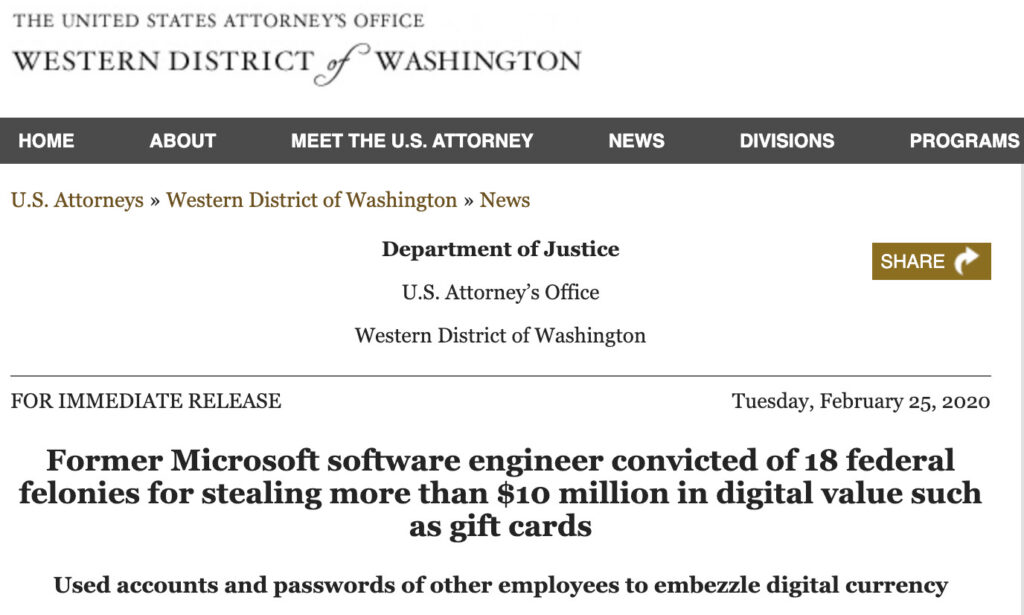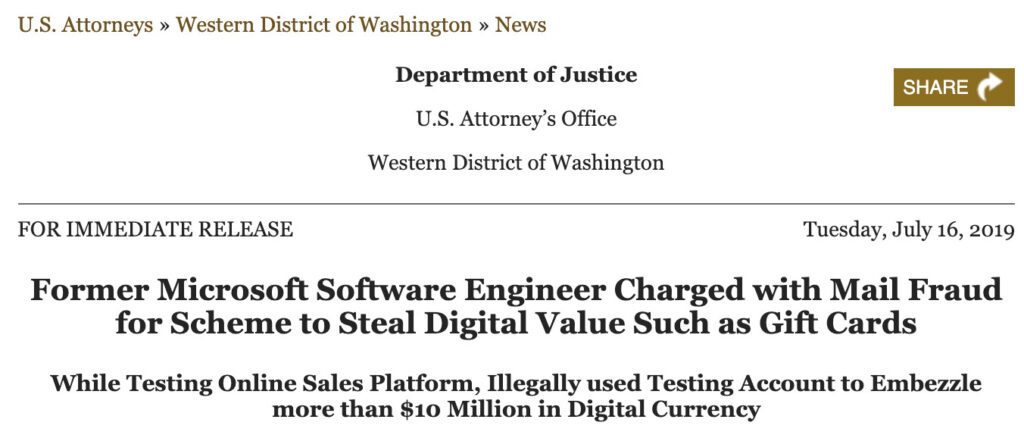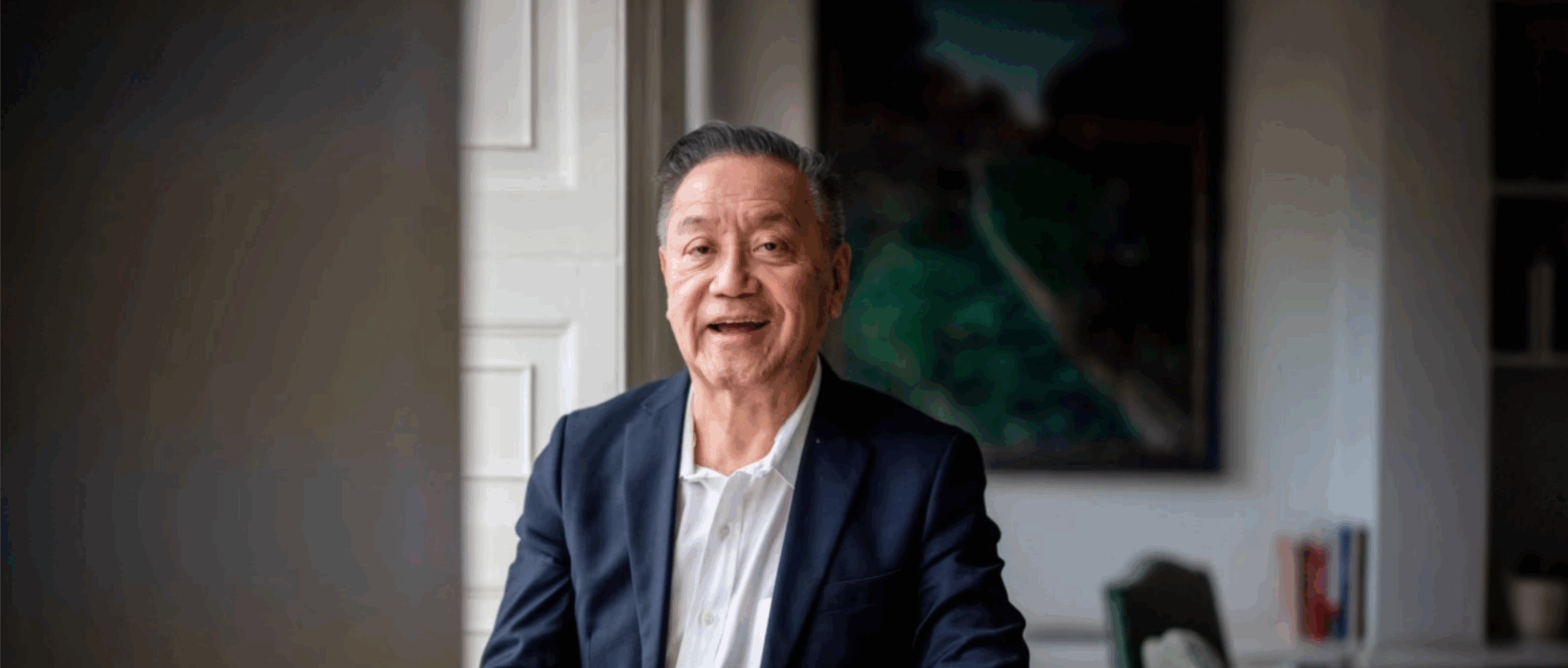Command Palette
Search for a command to run...
Former Microsoft Engineer Cashed out Tens of Millions of Dollars and Was Convicted of 18 Counts

Former Microsoft engineer Volodymyr Kvashuk was convicted of 18 felonies for stealing Microsoft's digital currency (vouchers) and cashing out, and faces up to 20 years in prison.
WeMall’s database was maliciously deleted by its employees, hundreds of merchants had their businesses suspended, and an engineer alone caused the company’s market value to evaporate by more than 10 billion.
Coincidentally, two years ago, a Microsoft programmer took advantage of Microsoft's lax internal supervision, stole online store gift cards and resold them, cashing out $10 million. He was later fired by Microsoft and sued. The case was recently tried.

In the news released by the Ministry of Justice, the process of Kvashuk's crime was restored and the final verdict was recorded.
Insider: Taking advantage of one’s position to cash out
Kvashuk, 25, is a Ukrainian who worked as a software engineer at Microsoft from 2016 to 2018 and was a contract employee of Microsoft before becoming a full-time employee.

In 2016, Kvashuk joined the Microsoft Universal Store team (UST), responsible for handling related e-commerce business.
According to the information, UST members are responsible for setting up virtual accounts in the Microsoft online store, and using the created email addresses to conduct production environment testing and credit card association functions, so that products can be purchased without incurring actual costs.
Using this position, Kvashuk created multiple test accounts through the online retail platform's testing program to steal "stored value currency" (such as Microsoft gift cards) and then resell them for cash.

Initially, Kvashuk used his account access to steal approximately $12,000 in petty cash.
Greed: Covering up evidence through money laundering and other means
Because Microsoft did not take precautions against its own employees, Kvashuk, having tasted the sweetness of success, became more brazen and used test email accounts associated with other employees to carry out larger-scale thefts.
In order to keep his actions undetected, Kvashuk even used a "Bitcoin mixing service" to transfer the dirty money to his bank account through money laundering.

In just seven months, Kvashuk transferred about $2.8 million into his bank account. To cover up his tracks, he submitted forged tax forms and later claimed that the bitcoins were gifts from friends and family.
Although his annual salary was around $116,000 at the time, Kvashuk made several extravagant purchases, including a $160,000 Tesla and a $1.6 million lakefront villa.

According to the final statistics, Volodymyr stole a total of $10 million worth of digital currency.
Exposed: Microsoft noticed and filed a complaint
Microsoft investigators noticed an anomaly in February 2018, when there was a suspicious increase in CSV (virtual currency) purchase orders in the Xbox gaming system.
Investigators traced the digital funds to two different websites where the products were resold and the source of the funds was two whitelisted test accounts.
With the help of relevant US departments, the truth came to light, and Kvashuk was eventually identified as the person who committed fraud. Microsoft confronted Kvashuk in May 2018 and fired him a month later.
Kvashuk was subsequently sued. According to the complaint, Volodymyr Kvashuk whitelisted his test account to bypass Microsoft's security and risk monitoring system and carried out long-term and large-scale fraud.
In July 2019, Kvashuk was formally arrested and charged with criminal fraud, accusing him of email fraud and the main charge of stealing $10 million in digital currency from Microsoft.

The case was ultimately investigated by the IRS Criminal Investigation Western Regional Cyber Crime Unit, and the U.S. Secret Service.
Sentence: 18 counts, up to 20 years in prison
The court held a trial on February 25, and the jury reached a final verdict after about five hours of deliberation.
Kvashuk was convicted of 18 counts, including five counts of wire fraud; six counts of money laundering; two counts of aggravated identity theft; two counts of filing a false tax return; one count of mail fraud; one count of access device fraud; and a third count of accessing a protected computer with the intent to commit fraud.

At trial, Kvashuk said he had no intention to defraud Microsoft and argued he was working on a "special project to benefit the company," according to the attorney's office.
Assistant U.S. Attorney Michael Dion told the jury his testimony was one lie after another.
Kvashuk will be sentenced in U.S. District Court on June 1 and faces up to 20 years in prison.
-- over--








